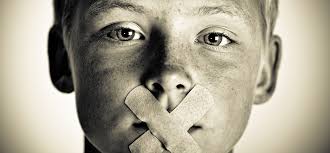
Let the Children Come Unto Them?
I write these weekly essays hoping that they help people who have given up on God or religion see things in a new light. That includes using clear and direct language to help them overcome the negative images of religion in society.
But it seems that for every blog I write, the media reports dozens of stories that provide many people with reasons to reject God or religion.
The latest is the revelation that a two-year grand jury investigation in Pennsylvania resulted in what is being called “the largest, most comprehensive report into child sex abuse in the Catholic Church ever produced in the United States.” The report says over 300 priests abused children over a period of 70 years, that officials found over 1,000 victims but that there are likely many more that haven’t been discovered.
Cover Up
And, says the report, bishops and other church leaders covered up the abuse, persuading victims not to report it and law enforcement not to investigate it. And this is just in one state. How many more victims would there be if other states conducted such investigations?
This comes on the heels of news that Cardinal Theodore McCarrick, the retired archbishop of Washington, D.C., resigned from active ministry after allegations of sexually abusing a minor. Church officials have called allegations he abused a young person years ago “credible and substantiated,” and other more recent allegations have been made against him.
This is not a public relations problem, and no one should blame the media for reporting it. It’s their job. No, this is a real problem that has to do with how power is wielded in the church and how loyalty to the institution often trumps all the other virtues that the church has taught for centuries.
It’s obviously not just a Catholic problem, of course. Such abuse is also reported among ministers of other faiths, teachers, health-care professionals, politicians and many others. But as a Catholic, I can’t help but cringe from shame when reading about it among the Catholic clergy.
“Each new report of clerical abuse at any level creates doubt in the minds of many that we are effectively addressing this catastrophe in the Church,” Cardinal Sean O’Malley, the archbishop of Boston, warned.
Suggestions on how the church could solve the problem is beyond me and beyond the scope of this blog. But from my perspective clerical abuse does more than instill doubt in people’s minds about addressing the crisis. It provides people who are already doubtful about the value of religion with more reasons not to embrace religious faith.
After all, it’s hard to imagine accusations that could be more inimical to the idea of a church that is a loving community of believers led by clergy who preach the Word of God by their lives as well as their words.
It brings to mind the scene in Mathew’s gospel in which the apostles – already showing the human proclivity toward authoritarianism – try to keep people from bringing children to Jesus. “Let the children come to me, and do not hinder them,” says Jesus, “for to such belong the kingdom of heaven.”
No Contact with a Priest?
Are there parents today who wonder if they should let their children have contact with a priest? I hope not. There’s hardly a week goes by that a story doesn’t appear in the newspaper about a teacher who has abused a child, and we allow our children to be with their teachers because the vast majority of teachers don’t molest kids. That’s also true of priests.
So what should be the reaction to these revelations of people searching for God? Horror and rejection of pedophilia, by the clergy or anyone else, but also what I recommend regularly in these blogs: persistence and courage in the search, and prayer.
When I was a kid, I vaguely remember a conversation my parents had about some parishioner who was leaving our parish because of something the pastor did or didn’t do. One of my parents said, “How can you allow your faith to be dependent on the behavior of others, priest or otherwise?”



